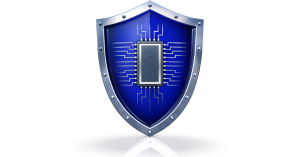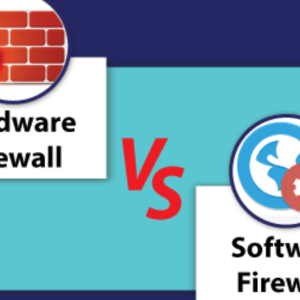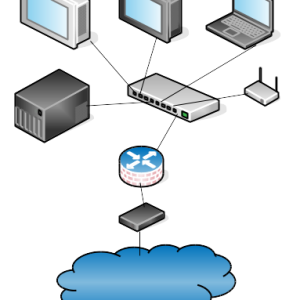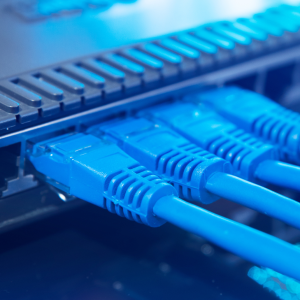
In the digital age, safeguarding your data and network infrastructure is paramount. One of the most effective ways to enhance your network security is by deploying a hardware firewall. This comprehensive guide will delve into the essentials of hardware firewalls, their benefits, and why they are crucial for any organization.
What is a Hardware Firewall?

A hardware firewall is a physical device that sits between your network and the internet, acting as a gatekeeper that monitors and controls incoming and outgoing network traffic based on predetermined security rules. Unlike software firewalls that run on individual computers, hardware firewalls are dedicated devices designed to protect an entire network.
How Does a Hardware Firewall Work?
Hardware firewalls function by examining data packets that travel to and from your network. These devices use a set of rules to determine whether a packet should be allowed through, blocked, or flagged for further inspection. The primary components of a hardware firewall include:
- Packet Filtering: This involves analyzing packets based on source and destination addresses, protocols, and ports. Only packets that meet the security criteria are allowed through.
- Stateful Inspection: This technique keeps track of active connections and makes decisions based on the state of the traffic.
- Proxy Service: Some hardware firewalls can act as intermediaries between users and the internet, filtering requests and responses.
Benefits of Using a Hardware Firewall
Implementing a hardware firewall offers numerous advantages, particularly for businesses that need robust network security. Here are some key benefits:
- Enhanced Security: Hardware firewalls provide a higher level of security by monitoring all traffic that enters or exits your network. They can prevent unauthorized access, malware, and other threats.
- Performance: Because they are dedicated devices, hardware firewalls do not consume resources on your computers or servers, ensuring that network performance remains optimal.
- Scalability: Hardware firewalls can handle large amounts of traffic and can be scaled to protect networks of various sizes.
- Centralized Management: With a hardware firewall, you can manage your network security from a single device, simplifying the administration and monitoring of your security policies.
Key Features to Look For in a Hardware Firewall

When choosing a hardware firewall, consider the following features to ensure you get the best protection for your network:
- Throughput: This refers to the amount of data the firewall can process in a given time. Ensure the throughput matches your network’s requirements.
- VPN Support: Look for firewalls that support Virtual Private Networks (VPNs) for secure remote access.
- Intrusion Detection and Prevention Systems (IDPS): These systems can detect and prevent potential threats before they infiltrate your network.
- Advanced Threat Protection (ATP): This feature provides protection against sophisticated attacks like zero-day exploits.
- Ease of Management: User-friendly interfaces and comprehensive management tools can simplify the deployment and maintenance of the firewall.
Top Hardware Firewall Brands
Several reputable brands offer high-quality hardware firewalls. Here are some of the top names in the industry:
- Cisco: Known for their reliability and extensive feature sets, Cisco hardware firewalls are widely used in both small and large enterprises.
- Palo Alto Networks: These firewalls are renowned for their advanced threat detection capabilities and ease of use.
- Fortinet: Offering a range of firewalls for different needs, Fortinet is known for their high performance and robust security features.
- SonicWall: Ideal for small to medium-sized businesses, SonicWall firewalls provide strong security at an affordable price.
Implementing a Hardware Firewall
Deploying a hardware firewall requires careful planning and consideration. Here are some steps to ensure a successful implementation:
- Assess Your Needs: Understand your network’s size, traffic volume, and security requirements to choose the right firewall.
- Plan the Deployment: Determine the placement of the firewall within your network architecture. Typically, it is installed between your network and the internet gateway.
- Configure the Firewall: Set up security rules, configure VPNs if needed, and enable advanced features like IDPS and ATP.
- Test and Monitor: After deployment, thoroughly test the firewall to ensure it is functioning correctly. Continuously monitor traffic and update rules as necessary.
Hardware Firewall vs. Software Firewall

While both hardware and software firewalls serve the purpose of network protection, they do so in different ways and have distinct advantages and disadvantages.
- Hardware Firewall:
- Pros: Higher security, dedicated resources, protection for entire network, centralized management.
- Cons: Higher initial cost, physical space requirement, complex setup.
- Software Firewall:
- Pros: Lower cost, easy to install, protection for individual devices.
- Cons: Consumes system resources, less robust for large networks, decentralized management.
Conclusion
In today’s cybersecurity landscape, protecting your network with a hardware firewall is a critical step. These devices offer robust protection, scalability, and performance that are essential for maintaining a secure and efficient network environment. By understanding the benefits and features of hardware firewalls, you can make an informed decision to enhance your network security. Investing in a high-quality hardware firewall is not just about protecting data; it’s about safeguarding your organization’s reputation and operational continuity.
Whether you’re a small business or a large enterprise, the right hardware firewall can provide the peace of mind you need in an increasingly connected world.
If you have any questions for us, you can see more at: https://hardwarepc.xyz/, X




